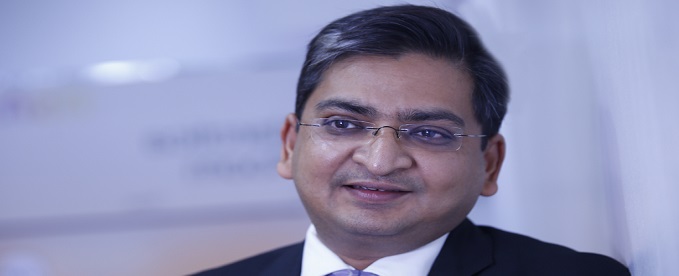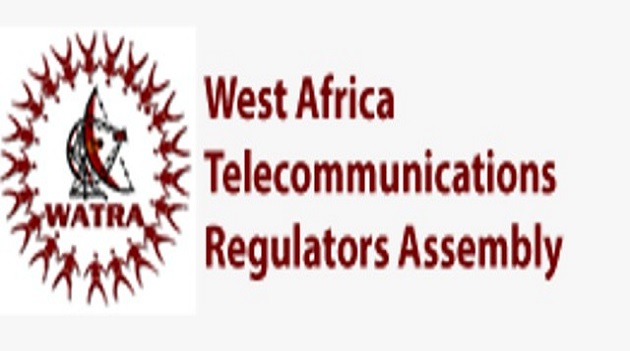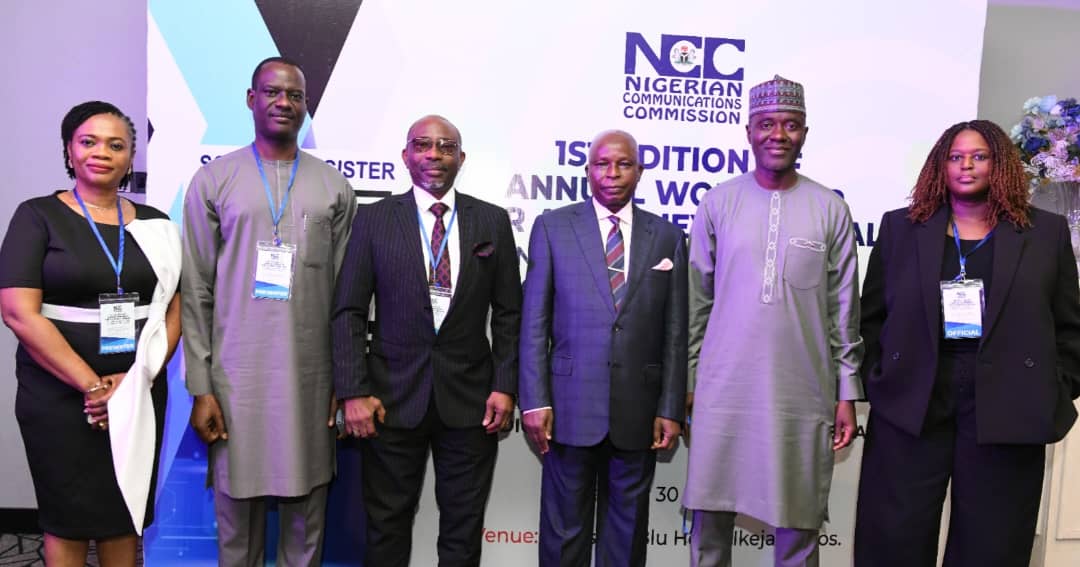Telecom
Fixed Broadband – The Next Big Thing for Nigeria

By: Rajiv Aggarwal
Nigeria urgently needs rapid rollout of broadband services to address the country’s various socio-economic challenges.

Rajiv Aggarwal, Head of CEWA Market Unit at Nokia
With a population estimated at about 203 million people, 23 percent of the overall population is currently unemployed.
Furthermore, 55 percent of the country’s youth are unemployed, which presents a massive challenge considering that over half the population is under the age of 25.
According to the Nigerian Communications Commission (NCC), the country’s broadband penetration as at June 2021 stood at is 39.9 per cent with a broadband subscriptions figure of 76.29 million.
Therefore, the country is faced with the tremendous challenge of puttingits largely unemployed and underemployed population to work.
Addressing Nigeria’s socio-economic challenges
The rapid rollout of broadband services will address various socio-economic challenges faced by the country, including the need to grow its economy, job creation, expansion of the tax base, and improving digital literacy and educational standards.
This will also address identity management and security challenges through the effective use of technology, increase financial inclusion and deliver a broad range of services to its people to improve their quality of life and work towards achieving the UN’s 2030Social Development Goals.
The new Broadband Plan is designed to deliver data download speeds across Nigeria of a minimum of 25Mbps in urban areas, and 10Mbps in rural areas, with effective coverage available to at least 90% of the population by 2025 at a price not more than N390 per 1GB of data.
The Broadband Plan will drive increased fibre connectivity in schools, healthcare facilities, government buildings and towers, amongst others.
Notably, a large traffic volume within the middle mile networks is still backhauled using microwave equipment today.
While this type of backhaul was adequate for narrow-band voice communications, it is no longer adequate for the effective delivery of bandwidth-intensive broadband applications driving current demand.
The need to make fibre-optics the de-facto means of backhauling traffic within middle-mile networks, for the effective deployment of broadband networks, cannot be overemphasized.
Last-mile connectivity in Nigeria is also largely mobile with comparatively lower investments made in fixed-line infrastructure within the past two decades.
There is therefore a need for improvement in last-mile connectivity for increased adoption.
More submarine cable access will become available as new players such as the 2Africa Consortium extend broadband cable branches to Nigeria, boosting broadband penetration across the country.
The consortium recently announced the addition of four new branches to the 2Africa cable, which will extend 2Africa’s connectivity to the Seychelles, the Comoros Islandsand Angola; and bring a new landing to South-east Nigeria.
The role of fibre and fixed wireless access
To date, fibre density in Nigeria remains particularly low with approximately 10% of base stations connected to fibre and most of the fibre networks overbuilt on the same routes.
The continued reliance on narrowband microwave links remains a limiting factor in terms of aggregate capacity and stability of mobile networks especially in a challenging electricity supply environment.
Denser metro fibre networks will also provide the essential building blocks for future Fibre-To-The-X networks. In addition, the massive development in the real estate sector of the economy with several ‘’gated communities ‘’ being built in cities like Lagos, Abuja, Kano, PHC, Ibadan are also fuelling broadband adoption in Nigeria.
Fibre access is considered the biggest and fastest growing technology with the largest eco-system of players that includes fixed and converged operators, governments, cities, utilities, enterprises, and infrastructure investors.
Fibre access networks are becoming the unifying infrastructure that underpins the entire telecom industry, connecting everyone to everything.
The COVID pandemic has highlighted the “digital divide” and the importance of broadband connectivity worldwide.
New and more powerful fixed networks are therefore needed to increase speeds and improve the user experience.
While fibre remains a preferred choice, it can be expensive, time consuming, and challenge to serve homes and businesses.
To address the broadband need in underserved rural and suburban markets where the economics of FTTH is too cost-prohibitive, fixed wireless access (FWA) is seen as a good substitute via 4G and 5G to enable high-speed broadband.
With expanding network capacity afforded by 5G and new sub-6 GHz and millimeter wave spectrum, more and more operators see FWA as a complement to their “fibre plus FWA” broadband strategy.
The fixed wireless access (FWA) market continues to expand, with the underlying broadband demand arguably accelerated by the COVID pandemic.
The market growth is supported and fuelled by robust product innovations.
It is therefore important to keep pushing the boundaries of fixed technology and make sure the investments in fixed networks made today will be usable for many years to come to meet the inevitable growth in demand for faster, more responsive, and immersive internet services.
Fibre broadband investment enables a premium customer experience, competitive advantage, the lowest operational costs (OPEX), and the lowest power consumption of any broadband technology, with the additional opportunity of service convergence (residential, enterprise and 5G transport).
As a major global equipment vendor with a leading set of Fixed Access technologies, Nokia partners with fixed, converged, mobile and cable operators to deliver extraordinary Gigabit broadband services and enable them to address the unprecedented demands on their networks today.
Our ability to take our customers beyond the network termination point and deliver gigabit broadband throughout the home is another strength, especially with the increased data consumption associating the pandemic.
Fixed broadband will enable Nigerian Service Providers to provide faster speeds and better coverage to customers while achieving the price points highlighted in the Nigeria Broadband Plan.
The use of passive fibre networks along with a shared infrastructure model will greatly reduce the costs of deployment while maximizing the Capex investment.
Fibre not only ensures the speeds of today, but that the capacity needed tomorrow can be met.
Fixed broadband and fibre not only ensure faster download speeds for end users on fibre, but can also serve as an anchor point for densification of mobile networks as well serving as a connection point for wireless access points and even cell towers in some instances.
All of this translates to greater broadband penetration in Nigeria and increased services and benefits for CSPs and their end customers.
As part of the 2Africa Consortium, Nokia is facilitating increased fibre deployments in Nigeria.
Alcatel Submarine Networks (ASN), a division of Nokia that has been selected to deploy the new branches, which will increase the number of 2Africa landings to 35 in 26 countries, further improving connectivity into and around Africa including Nigeria.
Nokia also provides GPON solutions to several providers in Nigeria, thereby increasing fixed broadband speeds using FTTH.
One of the examples is that Nokia is providing Spectranet, Nigeria’s largest Internet Service Provider, with its GPON solution and enabling 100+ Mbps ultra-broadband services to end users in Lagos and Abuja as part of an extensive Fiber-to-the-Home (FTTH) rollout.
This kind of deployments with Nokia’s superior fixed network technologies, in turn, enables Nigerian Service Providers to offer up to 1Gbps speeds to end customers using passive fibre connections.
Rajiv Aggarwal, Head of CEWA Market Unit at Nokia
Telecom
NIMC Migrates Telcos to NINAUTH Platform

National Identity Management Commission (NIMC) has announced the successful migration of all Telecommunications firms to the new National Identification Number (NIN) verification platform (NINAuth).

According to Dr Kayode Adegoke, head, corporate communications, NIMC, the migration marked a significant step forward in enhancing the security, efficiency, and user experience of NIN verification services.
Adegoke said in a statement that the NINAuth platform, designed and implemented by NIMC, offers seamless verification services to Nigerians.
He described it as a more convenient and secure way to verify citizens identities.
” By migrating to this new platform, Telecommunications firms can now provide uninterrupted verification services to their subscribers.
“This achievement is a result of NIMC’s painstaking efforts to put the power to control NIN data in the hands of the holders.
“The NINAuth platform enhances data protection, gives control of personal data to the owners, offers seamless verification, and provides convenient sign-on access to services,” Adegoke said.
He quoted Lanre Yusuf, director, IT/IDD, NIMC, as confirming that all telecommunications firms have been successfully migrated and uninterrupted verification services are being offered by the Commission.
While the Commission assured that the Verification and Authentication Service platforms are functional and accessible to all , it however, said any issue being experienced by NIN holders on New SIM registration, SIM swap, SIM migration, Welcome back SIM, and others should be directed to the Telcos for resolution.
Telecom
Aliyu Aboki, WATRA Executive Secretary Champions Regulatory Harmonisation to Unlock West Africa’s Digital Economy

Mr. Aliyu Yusuf Aboki, executive secretary of the West Africa Telecommunications Regulators Assembly (WATRA), has reaffirmed the Assembly’s commitment to -promoting a harmonised digital policy and regulatory environment across West Africa—stating that consistent, coordinated regulation is key to unlocking investment, innovation, and growth in the region’s digital economy.

Speaking at the opening of the third meeting of WATRA’s Working Groups in Accra, Ghana, Mr. Aboki emphasised that a harmonised regulatory space would turn West Africa into a coherent, unified digital market attractive to global and regional investors.
“WATRA is not just facilitating dialogue—we are laying the foundation for a seamless regional market where innovation and investment can thrive,” said Mr. Aboki. “This meeting in Accra reflects our collective determination to build regulatory infrastructure that enables inclusion, trust, and scale.”
Hosted by Ghana’s National Communications Authority (NCA), the four-day high-level session brings together telecom regulators, private sector leaders, development partners, and digital policy experts to share knowledge and experiences and develop recommendations that will refine regional frameworks in three key areas: consumer experience, infrastructure development, and cybersecurity.
Why Harmonisation Creates a Larger Market
The ECOWAS region—home to over 400 million people—has immense potential as a single digital market. Yet divergent national regulations have led to fragmented investment environments, increased compliance costs, and inefficiencies in service delivery.
By aligning rules and standards across borders, harmonisation expands the effective size of the market available to telecom operators, fintechs, digital platforms, and infrastructure investors. Instead of dealing with 16 different licensing regimes, spectrum policies, or consumer regulations, companies can scale more efficiently across the region—reducing costs and risks while increasing innovation and competition.
“Regulatory harmonisation transforms fragmented national markets into one larger, more investable region,” Mr. Aboki explained. “It’s the gateway to building regional tech champions, improving affordability for consumers, and fostering resilient digital systems.”
Why the Working Groups Matter
WATRA’s Working Groups—on Consumer Access and Experience, Infrastructure Development, and Cybersecurity—are the Assembly’s strategic engines for technical cooperation and reform. Under Mr. Aboki’s leadership, they are designing regional frameworks that serve as models for national implementation.
- Consumer Access and Experience: Enhancing consumer trust and fair service standards increases uptake of digital services and drives inclusive digital participation.
- Infrastructure Development: Harmonised infrastructure policies—especially around spectrum allocation, satellite communications and sub-sea and terrestrial optical fibre—attract investment in broadband, towers, and regional connectivity.
- Cybersecurity: Establishing regional cyber standards is critical to protecting users, safeguarding cross-border digital trade, and ensuring investor confidence.
“The Working Groups produce actionable, home-grown solutions that regulators can adapt to national contexts,” Mr. Aboki said. “They are where vision meets implementation.”
A Sector of Strategic Importance
West Africa’s telecommunications industry is a cornerstone of the region’s economic development. With over 250 million mobile subscribers, more than 120 million internet users, and nearly 15% of Nigeria’s GDP coming from ICT, the sector plays a transformative role in commerce, education, governance, and job creation.
Yet, the absence of harmonised rules continues to impede regional scale. Mr. Aboki stressed that the creation of a Single Digital Market in West Africa could unlock billions of dollars in annual value, supporting seamless mobile roaming, digital financial inclusion, cross-border e-commerce, and regional cloud infrastructure.
A Vision for Regional Digital Transformation
The Accra meeting will finalise recommendations and technical outputs for validation and adoption at WATRA’s next Conference of Regulators. These outcomes are expected to serve as shared regional standards—improving regulatory consistency while respecting each country’s unique context.
Ghana’s Acting Director-General of the NCA, Edmund Yirenkyi Fianko, expressed support for the harmonisation effort, citing Ghana’s leadership in ECOWAS free roaming and regional cybersecurity frameworks.
Aliyu Aboki’s Strategic Leadership
Since taking office, Mr. Aboki has steered WATRA into a new era of proactive, consensus-driven regional leadership. His efforts are helping to position the Assembly as a continental thought leader in telecom and digital regulation—bridging national priorities with a unified regional vision.
“Regulation should be an accelerator of innovation, not a barrier,” Mr. Aboki concluded. “Through harmonisation, we can build a larger, safer, and more inclusive market that delivers real benefits to citizens, investors, and governments alike.”
Telecom
NCC and Attorneys-General Forge Powerful Alliance to Accelerate Nigeria’s Digital Transformation

Nigerian Communications Commission (NCC) has officially inaugurated its first-ever Annual Workshop for Attorneys-General, convening top legal officers from across Nigeria to strengthen regulatory collaboration and drive the nation’s digital agenda forward.

L-R: Head, Legal & Regulatory Services, Nigerian Communications Commission (NCC), Chizua Whyte; Chairman, Presidential Fiscal Policy and Tax Reforms Committee, Taiwo Oyedele; Attorney General of Lagos State, Lawal Pedro, SAN; Attorney General of the Federation and Minister of Justice, Lateef Fagbemi, SAN; Executive Vice Chairman/Chief Executive Officer, NCC, Dr Aminu Maida; and Executive Commissioner, Stakeholder Management, NCC, Barr. Rimini Makama, during the 1st edition of a two-day Annual Workshop for Attorneys General on Emerging Issues in the Communications Industry, hosted by the Commission which started in Lagos on Wednesday, July 30, 2025.
Opening the workshop at the Sheraton Hotel in Ikeja, Dr. Aminu Maida, Executive Vice Chairman/CEO of the NCC, emphasized the urgent need for strategic partnerships between the legal community and regulatory authorities.
“Collaboration is not optional—it is essential,” said Dr. Maida.
The workshop aims to catalyze reforms in the outdated Nigerian Communications Act of 2003, aligning regulatory frameworks with cutting-edge technologies and evolving consumer needs. Areas of focus include artificial intelligence governance, 5G infrastructure rollout, and stronger data protection protocols.
Delivering the keynote address, Attorney-General of the Federation and Minister of Justice, Chief Lateef Fagbemi, SAN, praised the NCC for initiating this impactful dialogue. He underscored the importance of legal clarity and enforcement in combating obstacles such as fragmented taxation, overlapping regulatory mandates, and infrastructure vandalism.
Citing notable setbacks—including the 2023 vandalism of base stations in Kano and the tax conflicts in Ogun State—Chief Fagbemi described these incidents as economic sabotage and called for unified legal responses.
He also spotlighted Anambra State’s Right-of-Way policy, which led to a 38% increase in fibre optic deployment, urging other states to emulate such progressive approaches.
A pivotal highlight of the workshop was the reaffirmation of telecom networks as Critical National Information Infrastructure (CNII), officially designated under President Bola Ahmed Tinubu’s 2024 Executive Order. This new status demands heightened protection and robust legal support.
The NCC announced that the workshop will become an annual platform for cross-governmental collaboration on emerging digital challenges, including cybersecurity, sustainable connectivity, consumer rights, and regulatory innovation.
As Nigeria positions itself at the forefront of Africa’s digital revolution, this unified effort by regulators and legal stakeholders marks a bold step in shaping an inclusive, resilient, and future-ready communications landscape.

 Telecom2 days ago
Telecom2 days agoGlo Boosts Network Capacity for Enhanced Customer Experience

 News2 days ago
News2 days agoTranscorp Power Posts Strong Half-Year Profit, Declares ₦11.25Bn Dividend

 E-Financial2 days ago
E-Financial2 days agoFG Asks Banks to Report Individuals with N25m Monthly Transactions to FIRS

 Telecom2 days ago
Telecom2 days agoNIMC Warns Nigerians Against Selling NIN Data Amid Rising Identity Fraud

 Telecom2 days ago
Telecom2 days agoMTN’s Uto Ukpanah Becomes 30th ICSAN President, Reinforcing Female Leadership in Governance

 E-Business2 days ago
E-Business2 days agoTemu Joins INTA to Combat Counterfeits and Elevate IP Standards Worldwide

 News2 days ago
News2 days agoInfraCredit, AMDA Sign Partnership to Unlock Local Financing for Africa’s Mini-grid Sector

 General News2 days ago
General News2 days agoFG Collaborates with China to Digitalize Customs



























